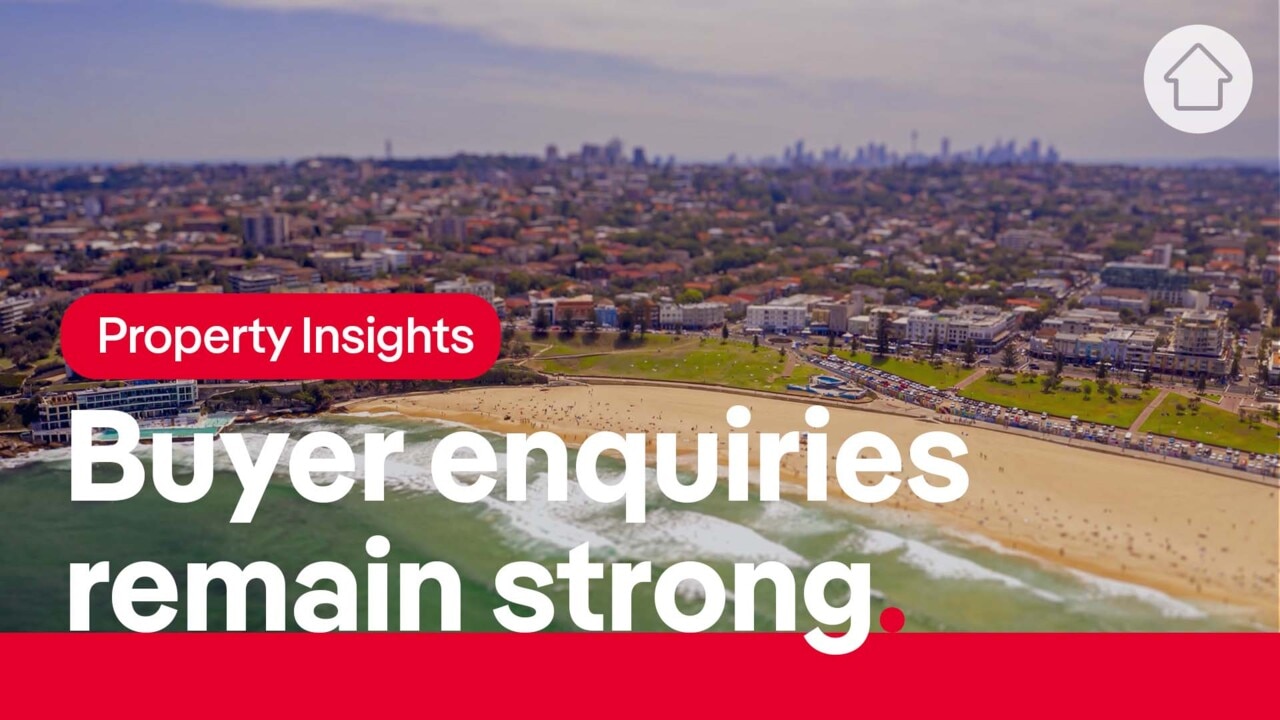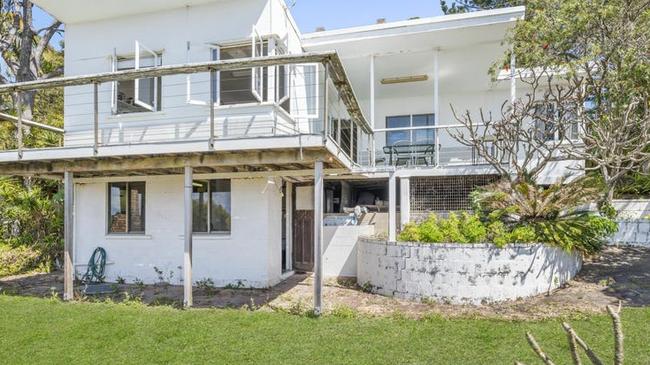Revealed: The Qld suburbs with mega mortgage debts
Shock new figures reveal how many Queenslanders are paying mortgages they cannot afford, with some owing more than $1m. FIND YOUR SUBURB

Property
Don't miss out on the headlines from Property. Followed categories will be added to My News.
SHOCK new figures reveal more than 320,000 Queensland homeowners are paying mortgages they cannot afford, with households in some suburbs more than $1 million in debt.
Research group Digital Finance Analytics has run the numbers on how much mortgage holders across every postcode in the state owe on their home loans ahead of the Reserve Bank’s final meeting for the year on Tuesday.

SCROLL DOWN TO SEARCH FOR YOUR POSTCODE
It comes as a Brisbane mortgage broker says the number of requests to change to interest-only home loans is on the rise.
The economic modelling found debt has never been so high, with households in 22 postcodes owe more than $500,000 on their mortgages, while homeowners in a handful of suburbs were saddled with more than $1 million owing on their mortgages.
The Queensland postcode with the highest mortgage debt owing is 4007, which encompasses the affluent Brisbane suburbs of Hamilton and Ascot in the city’s inner north. The median amount outstanding on mortgages in these suburbs is a staggering $1.1 million, which means a typical buyer would spend about $2000 a week on their home loan.

Alexandra Headland on the Sunshine Coast has the next highest amounts of average mortgage debt outstanding at $931,000, followed by Point Lookout and North Stradbroke Island at $849,000.
Mortgage holders in the 4567 postcode encompassing Noosa Heads and Sunshine Beach also have a high average amount outstanding on their home loans of $823,706.

The location where homeowners have the least left to pay off their mortgage is the rural town of Wallumbilla, east of Roma, where the average mortgage only has $30,000 owing.
MORE PROPERTY NEWS:
Priced out? Brisbane’s new ‘it’ suburbs revealed
Buy or rent? Buying cheaper than renting for half of Queensland homes
The rural town of Leyburn, near Toowoomba, and the outback towns of Winton and Opalton, also only have $35,000 on average owing on mortgages.

Digital Finance Analystics principal Martin North said nearly 40 per cent — or 322,500 — Queensland homeowners were paying mortgages they could not afford, with the largest debts in ‘aspirational’ suburbs that typically attracted upper middle-income buyers.
Mr North said that in Brisbane alone, there were just over 17,500 homeowners owing more than $1 million and a further 27,570 more than $500,000 in debt.

“The large mortgages are a function of high home prices, and ultra-low interest rates until finally the RBA started to lift them last year,” Mr North said.
“Before that, lending standards were weak, and we had various government schemes like home builder. As a result, the debt to income ratio blew out. Now, of course, we have higher rates, and more households are under pressure.

“Finally, we also saw a spate of ‘equity mate’ loans, as people refinanced for holidays, extensions, or helping kids to buy their home. Debt has never been so high.”
Not all of these homeowners were underwater with their repayments, but they were most at risk if they lost their incomes, he said.
Digital Finance Analytics also broke down the figures by mortgage type to reveal the postcodes where first homebuyers, refinancers, upgraders, downsizers, and those with long-time mortgages have the most debt.

Brisbane mortgage broker Glen Barnes of Commercial Finance Connections said he was receiving more requests to rewrite principal and interest loans to Interest Only as customers looked to save money.
“Unfortunately the series of rate rises over the past 18 months have left some exposed to higher repayments,” Mr Barnes said.
“This has meant the bulk of home owners’ take-home income is now going on meeting monthly repayments. This will mean less for luxuries like holidays, entertainment and clothing.”

Mr Barnes said a further rate rise on Tuesday would put more pressure on already stretched budgets, with savings accumulated during Covid now exhausted.
“I feel that a lot of the middle class are starting to notice the cost of living,” he said. “Everything is costing more. We are all reviewing our budgets and looking to make savings wherever we can.”
Mortgage Choice broker James Algar said borrowers hoping to refinance would need to pay close attention to the fine print as most banks had stopped offering substantial cash back arrangements, and fees to swap lenders could be up to $1000.

“If you are really struggling, it may make sense to move back in with your folks and rent your place out for a while,” Mr Algar said.
“Or you could rent your house out and then rent an apartment yourself. It is still cheaper renting than owning in many cases.”
Mr Algar said banks would not move to foreclose until borrowers were several months in arrears, meaning even those fearing they would fall behind this Christmas could potentially still have time to sell “under their own steam” before the bank took control.
For those looking to buy, Mr Algar said another 0.25 per cent rate hike in December would cut about 5 per cent from what they could borrow — and more for investment loans.

Buyers advocate and Golden Fox Advisory principal Benjamin Wash said that even if interest rates were to be cut next year, home prices would likely increase.
“Bottom line is that now is the time to buy as these already high prices will likely go up in the next 12 months, especially if interest rates drop,” Mr Wash said.
“Buyers are likely being assessed for loans at up to 10 per cent depending on the lender, and up to 12 per cent for investors, to protect the lenders from further increases, meaning that buyers who may be ready to buy, and were previously pre-approved, can no longer obtain a loan. Unless there is a sharp increase in the amount of available stock, many buyers will remain shut out of the market.”



